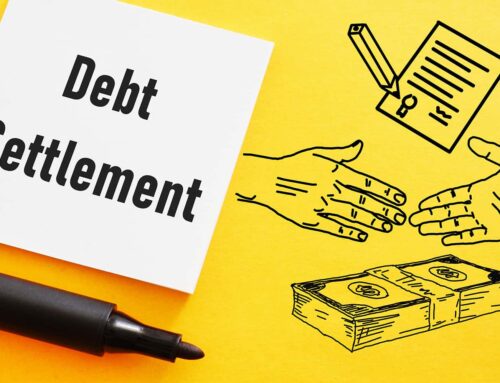5 Mistakes to Avoid When Considering Debt Settlement
Many Americans struggle with debt. For example, 23% report that their credit card debt increases each month, and 14% have missed a payment recently. Debt settlement is one option Californians pursue to reduce the amount they owe. However, a few common mistakes can make debt settlement less effective or cause it to backfire on you.
1. Forgetting To Run the Numbers
If debt settlement talks go well, you could end up having to pay less than the original amount you owe. However, run the numbers first.
What happens sometimes is that people still file for bankruptcy protection after debt settlement. This is because, even with half of their debt basically disappearing, they still struggle with the remaining debt. Make sure you can comfortably handle the debt load that would stay with debt settlement.
2. Choosing a Debt Consolidation Company
In theory, debt consolidation could make your debts more manageable because you focus on one payment instead of multiple, possibly confusing payments. However, it is typically a bad idea to use a debt consolidation company in general. This extends to using such a company to negotiate debt settlements.
For example, consolidation companies charge substantial monthly fees, and there is no promise you will end up with a smaller debt load if you ask the company to negotiate settlements. Beware of using these companies to consolidate debts too, since they can charge origination, balance transfer, and annual fees, and closing costs. You might also see your interest rate go up, and missing one payment can have a huge impact on your financial health.
3. Skipping a Legal Consult
A debt settlement lawyer can help you determine the viability of debt negotiation in your particular case. Lawyers can also handle the negotiations and often can get you a settlement for pennies on the dollar.
Lawyers have the potential of bankruptcy to discuss with creditors. Thus, creditors may be more willing to settle because of the increased odds they get some money. They might get none in bankruptcy. Other advantages of having a lawyer help with your case include these:
- A tailored approach to repayment that works for you, whether it is a one-time lump sum or monthly payment plans
- Agreements that are legally sound and that creditors cannot later wriggle out of
- Full protection for clients
- Expertise in negotiations with creditors
Lawyers can often negotiate repayment amounts of less than you owe to unsecured creditors, or a repayment of the debt over many months without interest. You can save a lot by paying pennies on the dollar. Inexperienced negotiators and uninterested debt consolidation companies may not have the expertise or motivation to lower payments as much as possible.
Lawyers can also make sure you don’t settle debts you are no longer legally responsible for. Creditors in California generally have four years to ask a court to force you to pay debts. In other words, if five years have passed, you may not be responsible for paying a debt.
California law does not always apply, which is one important consideration. Depending on your credit card or creditor, other state laws such as Delaware or Virginia may apply.
4. Performing Incomplete Research
It is important to know the difference between secured and unsecured debt and what creditors’ strong and weak points are. With secured debt, a creditor can take the secured property such as a car or house if you do not make payments. With unsecured debt such as credit cards, your assets generally should not be at risk. However, unsecured creditors may try to take advantage of you and threaten to take away your property.
You should always know whether each of your debts is secured or unsecured and what creditors are legally allowed to do. Secured creditors are at an advantage because they can retake property.
However, unsecured creditors do have some capabilities such as being able to demand payments even while negotiations are ongoing. They can even initiate a lawsuit while you are negotiating. They also can garnish your wages if a lawsuit is successful and can get money from your bank account.
In your favor, debt collection agencies must follow the Fair Debt Collection Practices Act. It limits many tactics. Creditors are not subject to FDCPA limitations, but many states, California included, restrict what creditors can do to collect.
Debt settlement mistakes that stem from incomplete research also include using retirement funds to pay debt (often with the subsequent tax withdrawal penalties) and using home equity or car equity loans to pay unsecured debt.
5. Forgetting Mental and Emotional Preparation
Debt settlement talks can require a lot of mental and emotional fortitude. It can be hard to stay tough and continue to try to negotiate when a creditor is threatening a lawsuit and contacting you constantly.
Contact a Debt Settlement Lawyer To Learn More
A debt settlement lawyer can talk you through the various factors involved, help you determine if debt settlement makes sense, and conduct negotiations on your behalf. Contact the Law Offices of Brent D. George to schedule a consultation today.
Disclaimer: This article is intended for informational purposes only and does not constitute legal advice. For personalized assistance, please contact our office at (805)494-8400.






